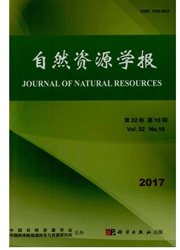

 中文摘要:
中文摘要:
针对传统能源使用过程中产生的环境、气候问题,由中央政府制定并实施的农村能源政策倡导农户使用多种清洁能源及技术。同时,商品能源逐步成为当下农户生活能源的重要组成部分。"并举式"的能源政策是否造成甚至扩大不同能源、技术的需求差异,这一结果是否符合政策的初衷和目标?基于此,论文研究并分析2005—2014年农村能源政策以及收入水平对农户生活能源需求的影响。结果表明:政策的实施加剧了存在替代关系的能源、技术需求间的此消彼长;政策的溢出效应促进了部分商品能源需求;收入的提高对部分能源需求产生了正向作用。建议制定兼顾清洁能源以及商品能源的农村能源发展战略和政策,实现政策的精准发力,同时加强能源基础设施的建设和管理。
 英文摘要:
英文摘要:
In order to alleviate environmental and climate problems caused by using highcarbon energies in Chinese rural areas, the central government adopts policies that promote the use of a variety of clean energies and technologies. Meanwhile, commodity energies such as liquefied petroleum gas and electricity are becoming important parts of household energies.Will the rural energy policy cause or even widen the gap of the households' choices between alternative energies and technologies? Will the shift among the household demand of different energies be consistent with the original intention and goal of the policy? Based on the data of provincial rural energy consumption from 2005 to 2014, this paper analyzes the changing process of Chinese households' demand of clean energies(technologies) and commodity energies, discusses the effects of the rural energy policy(i.e., the energy expenditure and investment) and the income level(i.e., the per capita net income of farmers) on households' demand for specific energies, and explores the implementing results of the policy. It is found that if there exists substitution among different kinds of energies or technologies, the rural energy policy will promote the need of some energies or technologies but weaken the need of the others. At the same time, the spillover effect of the policy boosts the demand of some commodity energies, such as the electricity, due to the fact that the policy improves the energy infrastructure in rural areas, which ensures the availability of commodity energies. What's more, the structure of rural household energies tends to be diversified with the improvement of the income level. Suggestions are: Firstly, as clean energies, specific commodity energies should be considered in the rural energy development strategy and policy; secondly, the focus of the policy should comply with the stage of the energy demand; eventually, it is essential to strengthen the construction and management of the rural energy infrastructure.
 同期刊论文项目
同期刊论文项目
 同项目期刊论文
同项目期刊论文
 期刊信息
期刊信息
